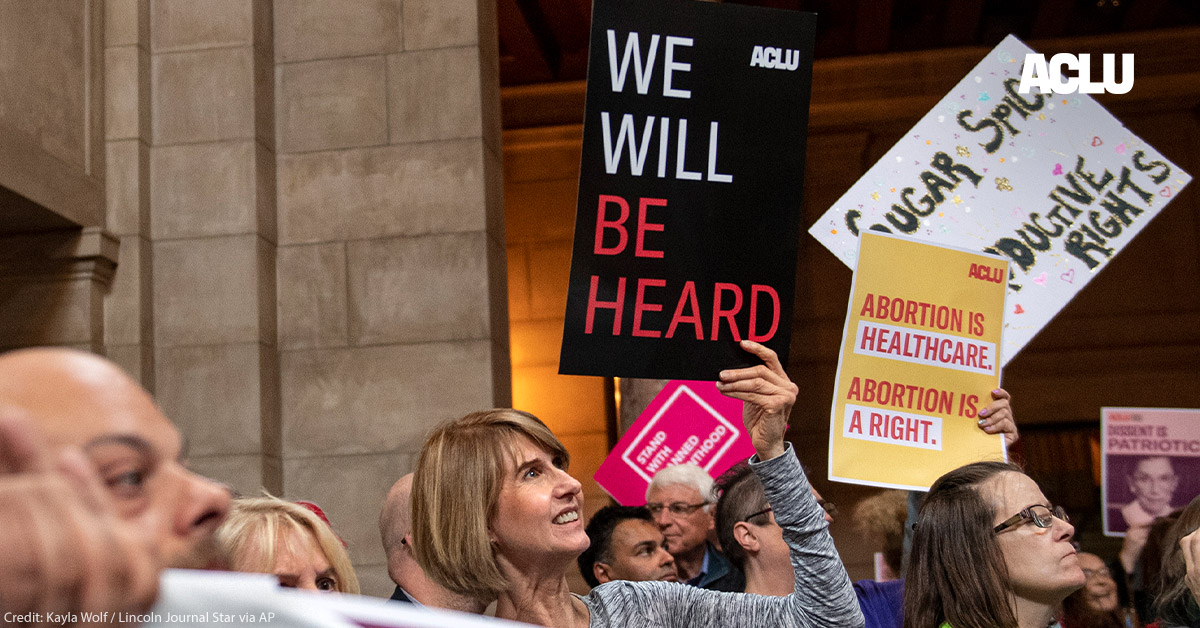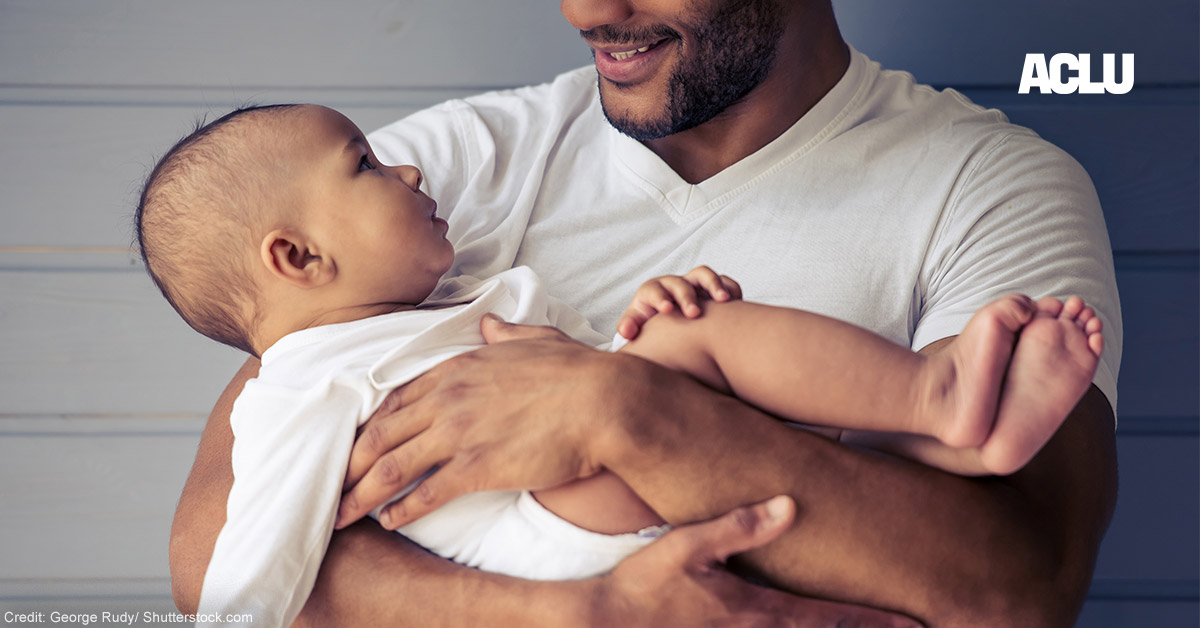By Ria Tabacco Mar, Director, ACLU Women’s Rights Project and Dana Sussman, Deputy Commissioner for Intergovernmental Affairs, New York City Commission on Human Rights
One of the simplest joys of expecting a baby is sharing the news with other people. That wasn’t the case for Steven van Soeren, a product designer for Disney’s streaming service, when his wife became pregnant.
“You shouldn’t have a kid,” one Disney coworker told him, according to allegations in his complaint. “I don’t know why he decided to have a kid,” said another within earshot of van Soeren.
Objections to van Soeren becoming a father weren’t limited to cruel remarks. Shortly after van Soeren returned from two weeks of paternity leave, he was fired. Van Soeren thought that was wrong — and illegal. He sued his former employer, but a federal court dismissed van Soeren’s case last month, reasoning that his firing wasn’t unlawful discrimination because van Soeren himself had not been pregnant.
The late Supreme Court Justice Ruth Bader Ginsburg would have disagreed. She was well known for her legal strategy arguing cases on behalf of men to demonstrate how sex discrimination harms us all. Ginsburg wanted everyone to have equal opportunity to work and participate in family life according to their own needs and wants, regardless of their gender. She also knew that in order for women to enjoy full equity outside the home, society would have to empower men to share the responsibilities within it. That meant breaking free from traditional gender roles and discriminatory laws that dictated that caregiving was a woman’s job — and never a man’s.
Ginsburg’s view of the law prevailed, in 1975 and beyond. In a 2003 decision authored by then-Chief Justice William Rehnquist (and joined by Ginsburg, by that point a member of the court herself), the Supreme Court noted that by denying men paternity leave or discouraging them from taking it, employers “created a self-fulfilling cycle of discrimination that forced women to continue to assume the role of primary family caregiver.” Congress, it held, was rightly empowered to address sex discrimination of this kind.
Yet the van Soeren decision demonstrates that existing federal law is insufficient. Local laws have filled the gap — New York City, for example, added express protections against discrimination for caregivers, regardless of gender or one’s ability to become pregnant, in 2016. In June, Sen. Cory Booker introduced legislation that would protect all mothers, fathers, and other family caregivers from employment discrimination.
That’s important because caregiving isn’t just about parenting. The New York City Commission on Human Rights, which enforces local laws against caregiving discrimination, regularly receives complaints from New Yorkers who say they’ve been penalized for caring for their spouses, parents, and other loved ones. One man reported losing his job after telling his supervisor that he needed to take a week off to care for his wife after an illness. He says his supervisor laughed at him for doing “the woman’s job” and then replaced him while he was out caring for his wife.
Another New Yorker said she asked to work remotely from her mother’s home in another state while her mother went through cancer treatment. She was surprised when the request was denied; she worked for an international company, where teams were spread across multiple offices and collaborate remotely, and other employees had been allowed to work remotely for personal travel or a spouse’s sabbatical. And though she wasn’t able to care for her mother, she was punished simply for making the request, coming under increased scrutiny and, ultimately, laid off while others without caregiving responsibilities were allowed to keep their jobs.
Fortunately, both workers were protected by New York City’s law. But without nationwide express protections from caregiver discrimination in all its forms, the van Soeren decision sends a terrible message — and one that could not land at a worse time.
Women are at the center of the most unequal recession in modern American history. The back-to-school season — without physical school reopenings in many parts of the country — has worsened the situation: Of 1.1 million workers who dropped out of the workforce in September, 80 percent were women. This shouldn’t be surprising. Parents, overwhelmingly mothers, have had no alternative but to drop out of the labor market to manage their children’s education. This decision is likely the result of women’s entrenched income inequality, leading many different-sex couples to try to preserve the earning potential of the partner who makes more. In most cases, that’s the man.
Other mothers have had the choice made for them, either because they work in jobs that can’t be done from home or because their employers penalized them for having children at home while they worked. Coupled with the already disproportionately high rates of unemployment for women since the start of the pandemic, it may take decades for women to recover. And these disparities are far worse for women working in low-wage positions, Black women, and other women of color.
All of this explains why Ginsburg might well have decided to take on a case like van Soeren’s. As Ginsburg famously said, “Women will only have true equality when men share with them the responsibility of bringing up the next generation.” Now more than ever, lawmakers across the country must work to make Ginsburg’s vision a reality by ensuring caregiving discrimination protections for all — regardless of gender.
https://www.aclu.org/news/womens-rights/men-are-being-fired-for-being-caregivers-heres-why-that-hurts-women-too


